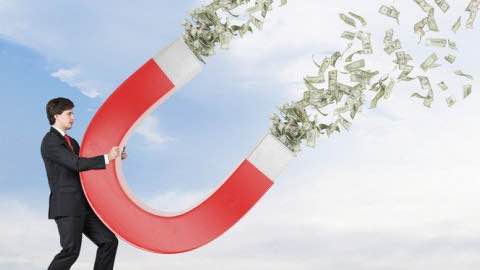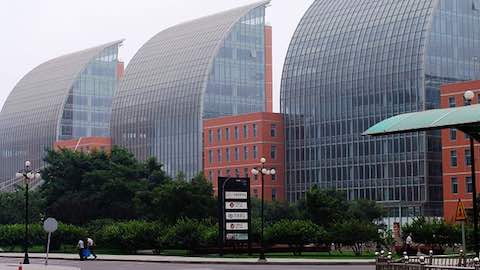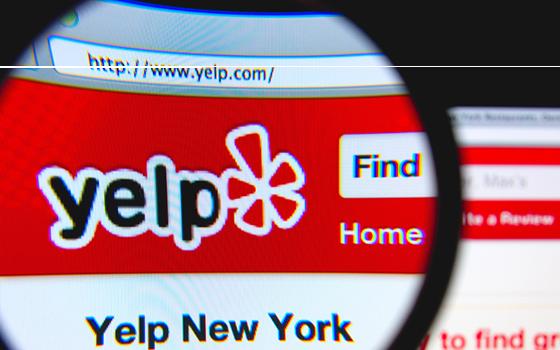- MENU
- HOME
- SEARCH
- WORLD
- MAIN
- AFRICA
- ASIA
- BALKANS
- EUROPE
- LATIN AMERICA
- MIDDLE EAST
- United Kingdom
- United States
- Argentina
- Australia
- Austria
- Benelux
- Brazil
- Canada
- China
- France
- Germany
- Greece
- Hungary
- India
- Indonesia
- Ireland
- Israel
- Italy
- Japan
- Korea
- Mexico
- New Zealand
- Pakistan
- Philippines
- Poland
- Russia
- South Africa
- Spain
- Taiwan
- Turkey
- USA
- BUSINESS
- WEALTH
- STOCKS
- TECH
- HEALTH
- LIFESTYLE
- ENTERTAINMENT
- SPORTS
- RSS
- iHaveNet.com: Business
Agriculture | Airline | Auto | Beverage | Biotech | Book | Broadcast | Cable | Chemical | Clothing | Construction | Defense | Durable | Engineering | Electronics | Firearms | Food | Gaming | Healthcare | Hospitality | Leisure | Logistics | Metals | Mining | Movie | Music | Newspaper | Nondurable | Oil & Gas | Packaging | Pharmaceutic | Plastics | Real Estate | Retail | Shipping | Sports | Steelmaking | Textiles | Tobacco | Transportation | Travel | Utilities
3M (MMM) | AT&T (T) | AIG (AIG) | Alcoa (AA) | Altria (MO) | American Express (AXP) | Apple (AAPL) | Bank of America (BAC) | Boeing (BA) | Caterpillar (CAT) | Chevron (CVX) | Cisco (CSCO) | Citigroup (C) | Coca Cola (KO) | Dell (DELL) | DuPont (DD) | Eastman Kodak (EK) | ExxonMobil (XOM) | FedEx (FDX) | General Electric (GE) | General Motors (GM) | Google (GOOG) | Hewlett-Packard (HPQ) | Home Depot (HD) | Honeywell (HON) | IBM (IBM) | Intel (INTC) | Int'l Paper (IP) | JP Morgan Chase (JPM) | J & J (JNJ) | McDonalds (MCD) | Merck (MRK) | Microsoft (MSFT) | P & G (PG) | United Tech (UTX) | Wal-Mart (WMT) | Walt Disney (DIS)
-
Apple is criticized for shifting profits into Irish affiliates where its tax rate is under 2 percent, yet a growing chorus calls for lower corporate taxes in order to make the U.S. more competitive. Global capital is gaining enormous bargaining power over the nation state
-
Tax havens have been around for decades but they were viewed as marginal phenomena. Attitudes are changing. It is difficult to avoid the conclusion that tax havens are at the very heart of 'neoliberal' globalization, facilitating tax avoidance on a vast scale
-
I'm appalled by the carelessness and indifference of the BP executives responsible for the disaster. But holding corporations criminally liable reinforces the same fallacy that gave us Citizens United v. Federal Election Commission
-
While all eyes are on the Supreme Court and Obamacare, a quieter battle is being waged against the president's other major initiative, the Dodd-Frank financial reform act
-
Battered by austerity, governments remain reluctant to show leadership. But a shift in the financial sector is now underway, increasingly recognising that long-term returns are linked to sustainable development
-
Entrepreneurship takes an eye for opportunity and a willingness to take risks, business school officials say. These new M.B.A. programs offer unconventional ways to help channel an entrepreneurial spirit
-
Start-ups are particularly critical to job growth. Federal Reserve Chairman Ben Bernanke noted last week the importance of small businesses to the job market, and in particular, the significance of start-ups.
-
The war between the White House and big business is getting worse. Tom Donohue, CEO of the U.S. Chamber of Commerce, fired the latest salvo when he warned that President Obama's policies, including new government regulations and vast government spending, are slowing growth and stalling job creation. The Obama Administration is fighting back
-
With high and volatile commodity prices, forward-looking companies sense that the economics of production may be about to alter again
-
The moral crisis in America isn't a breakdown in private morality. It's a breakdown in public morality
-
CEOs have a much rosier outlook for the future than they did just three months ago ... but don't count on a huge influx of new jobs just yet
-
Not long ago, corporate philanthropy didn't involve much more than writing a check to United Way or the local opera. Nowadays that's changing. Blame corporate shareholders for tightening the purse strings, or credit Barack Obama and an entire generation raised on public service. All are forcing companies to get creative, to focus on making more of a difference while spending less cash
-
The economy is not bouncing back anytime soon. Even worse, it's clear that Washington is not up to the task of creating the conditions for the job growth we so desperately need. But I'm pleased to report that Americans across the country are choosing to react by taking action. As a result, a parallel economy is being created by people who, finding there are no jobs, have decided to create their own
-
In the current era of staged political events, it was risky the other day that President Obama took part in a freewheeling town-hall meeting on CNBC, the network's cable business channel, on his handling of the troubled economy.
-
President Obama signed another major piece of legislation, as Democrats in Congress declared victory in their financial reform fight. What started as a bipartisan initiative to end the risky, and ultimately damaging, Wall Street practices that led to the nation's Great Recession passed with little Republican support
-
For the most part, the narrative of the economic crisis has featured teetering banks from Wall Street to Main Street, a tide of bad mortgages, and countless distressed, middle-class homeowners. But in 'Broke, USA: From Pawnshops to Poverty, Inc.-- How the Working Poor Became Big Business', journalist Gary Rivlin says there is another dimension to the story
-
As the Securities and Exchange Commission thrusts the Goldman Sachs case onto the national stage, Americans are once again getting acquainted with the most controversial members of the recession-era cast of characters: the subprime mortgage, the 'too big to fail' doctrine, the Wall Street bailout, and the housing bubble, just to name a few.
-
If you are Exxon Mobil, Verizon or General Electric, chances are filing taxes over the past few years has been significantly less painful than for the average American
-
The Occupy Wall Street movement is a protest uniquely suited to a generation schooled in social media. There are no leaders: it's crowd-sourced. Nor does it have any specific demands beyond a thorough reorientation of American priorities. It's as if thousands and thousands of people have 'unliked' Wall Street
-
I hate to be one of those old crocks who talks about how things were better in the old days. But you know what? Some things really were better in the old days, including newspapers
-
Did the attacks of 9/11 end the movement against corporate globalization?
-
Being an effective leader is a critical trait for business executives. These unique MBA courses offer unusual ways to help you hone your skills to become a successful leader.
-
No doubt you've heard the research that 'proves' multitasking is counterproductive, but I disagree. There is bad multitasking and there is good multitasking. The trick is to learn how to multitask the right way. Here's 4 Steps to Becoming a Multitasking Master
-
Do you trust financial services companies? According to the latest Chicago Booth/Kellogg School Financial Trust Index, it seems as though public trust in financial services companies is coming up a bit short.
-
The gap between the diffuse human yearning for a decent world and the organized agenda of the corporatocracy, has never, in my lifetime, been wider. What the BP Oil Spill has yet to reach are the headquarters of corporate power and the consciences ensconced therein. The arrogance of the great capitalists remains undamaged
-
The bracing reality that America has two sets of rules -- one for the corporate class and another for the middle class -- has never been more indisputable. The middle class, by and large, plays by the rules, then watches as its jobs disappear -- and the Senate takes a break instead of extending unemployment benefits. The corporate class games the system
-
Car dealers, with their opaque pricing system and trade-in and financing tricks, make their customers feel like pigeons. The No. 1 consumer complaint received by the Better Business Bureau and other consumer agencies is on abusive financial practices by auto dealers, according to the Center for Responsible Lending
-
Today's corporate elites should stop pushing for austerity for the many and prosperity for the few and embrace Henry Ford's strategy of shared prosperity
-
Use Facebook right, and you'll boost your business image -- and your profits. Here's how
-
Calls for a more coordinated system of international financial regulation have been growing as the Occupy Wall Street protests in New York inspire similar demonstrations around the world
-
In the approaching Senate vote on Wall Street financial reform, the Republicans who marched in lockstep against President Obama's health care legislation have a much less comfortable political decision to make.
-
Amid a flood of revelations about Wall Street fraud and corruption -- from mortgage brokers peddling loans they knew couldn't be paid back, to rating agencies dressing up junk with AAA ratings, to Goldman Sachs creating and selling a security designed to fail. The major question is whether the Senate will step up and vote to break up the big banks
-
As the Senate gears up to debate and vote on reform of the financial industry, the Democrats find themselves in a much more advantageous position than they were in the health-care fight they barely managed to win.
© iHaveNet.com




